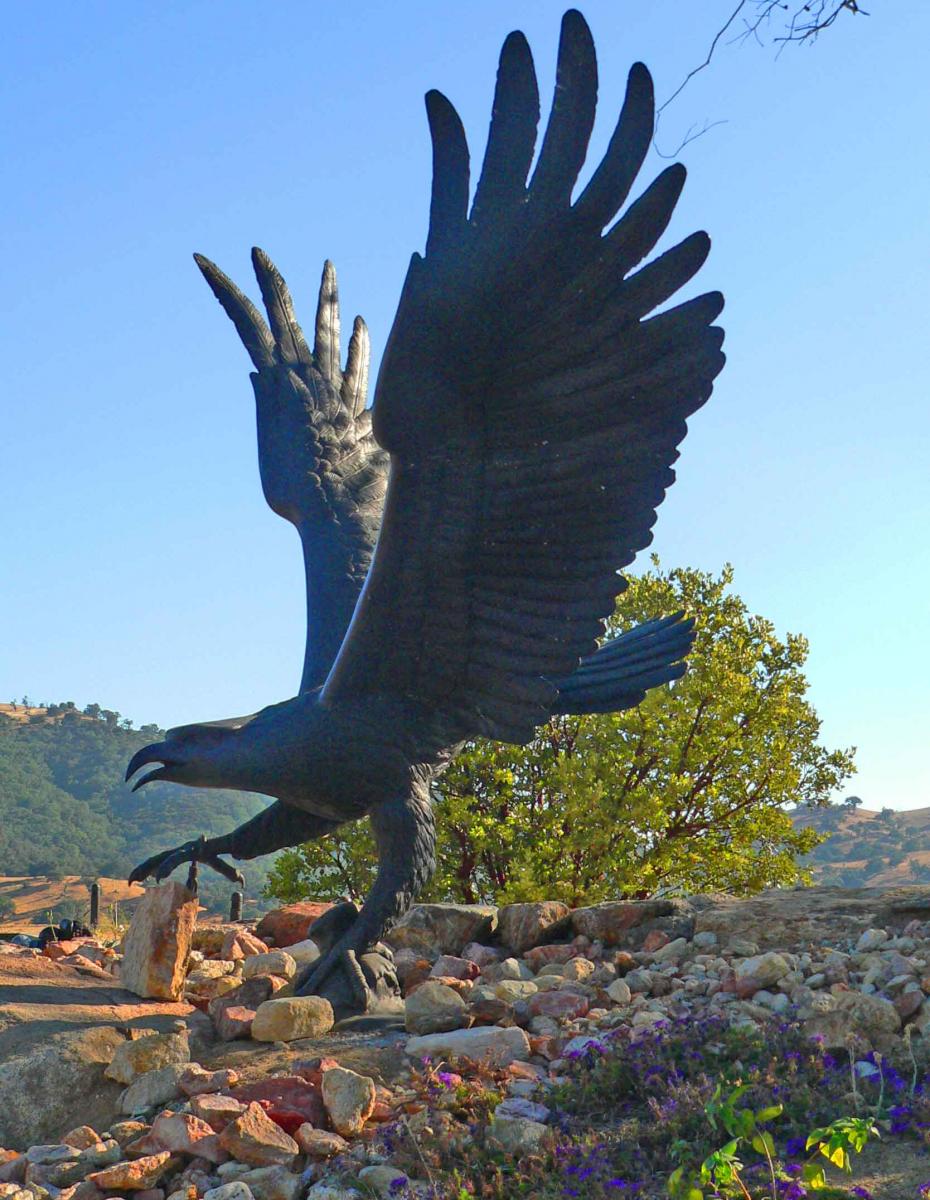
By Miriam Raftery
February 8, 2014 (Santa Ysabel) – One day after the Iipay Nation of Santa Ysabel’s tribal council met and voted to shut down its financially troubled casino in Santa Ysabel, employees arrived at work to find the facility closed last week. Patrons found a “closed for business” message on the casino’s website.
Now, a tribal business enterprise, Biostar Solar, offers a potentially brighter future.
Going forward, a key question remains what the tribe will do with the existing casino site and what other business ventures it may enter into to provide jobs and economic opportunities to tribal members. Tribal Chairman Virgil Perez has reportedly indicated that scaled back gaming operations might be an option, but the tribe is diversifying in hopes of creating a a more diverse and sustainable business model.
Recently, the tribe has entered into an operating agreement with Biostar Solar, which just received its minority enterprise certificate on February 3, 2014 from the California Public Utilities Commission, Bill Love with Biostar Solar confirmed in an e-mail forwarded to ECM. The tribal business venture’s Small Business Administration status is pending and the venture has not yet generated revenues.
The tribal enterprise company’s website at www.BiostarSolar.com describes the business as follows: “We are a full-service solar developer with extensive experience to build, own and operate customized turnkey solar solutions. Our management team has diverse and extensive experience in a variety of fields and industries including solar installations, hydro electric, bio mass, financing and contracting.”
June Sortore, a tribal member and Vice Chairman of the tribe’s Enrollment commission, has proposed another idea: delaying flow of tribal waters that run downhill off the reservation. “If you had an ecologically sound fish hatchery, that’s a win-win situation.”
She added, “I have grandchildren and it’s really important to save them a future where we can enjoy what this was set aside for. It’s not our way to damage this earth.”
The casino faced steep odds from the outset, opening in April 2007 a remote location off Highway 79 with far fewer slot machines than larger casinos closer to population centers. Then in October 2007, the Witch Creek Fire roared through the area, forcing a one-week shut down and cancellation of the casino’s planned grand opening event.. The recession that began in 2008 further exacerbated those problems; in its first three years, the casino lost $24 million and today has debts of over $50 million, U-T San Diego reports.
That includes over $3 million to the County of San Diego. The tribe tried to file bankruptcy in 2012, but was denied by a judge. An agreement forged required the casino to pay the county for off-site services such as more sheriff’s deputies in exchange for keeping its doors open. The tribe also owes large sums to the Apache nation, which loaned money to aid the struggling local tribe’s casino.
“This very difficult decision for the tribe was made after considered and careful consideration of the current economic climate in gaming in this region,” Tribal Chairman Virgil Perez said in a written statement, calling challenges faced by the venture “insurmountable.” He also voiced concerns for the casino’s 115 employees.
Sortore told ECM she faults the tribe’s former Chairman Johnny Hernandez , alleging he entering into contracts without the approval of tribal members. ECM left a message on Hernandez’ voice mail indicating serious questions had been raised regarding his leadership on the casino project, but he has not returned our phone call several days later.
“He made all these different deals with companies and left us holding the bag,” said Sortore, who initially voted against approving the casino but nonetheless hoped it would succeed. She said the tribe lacked funds to fulfill obligations to provide law enforcement, a tribal court and other contract obligations. She also asserted that Hernandez “sold our water rights” for various development projects and that some deals were made without consent of voting members required under the tribal constitution. A tribal council officer reportedly contacted federal authorities regarding Hernandez’ actions but no federal actions were taken. Hernandez was later voted out as Chair.
Closure of the casino raises concerns not only for tribal members and casino employees, but also for the Santa Ysabel Fire Department, which received substantial funds as part of casino impacts mitigation. Coming during the worst drought in California’s recorded history, that news is troubling for residents throughout this small rural fire district.
Native American people take pride in planning for seven generations ahead. Now, for their future, some Iipay tribal members are hoping that investing in solar energy and other business enterprises will hold promise for a better, more sustainable tomorrow.







Comments
More on Biostar Solar
Thanks for clarifying,
Does anyone know what this